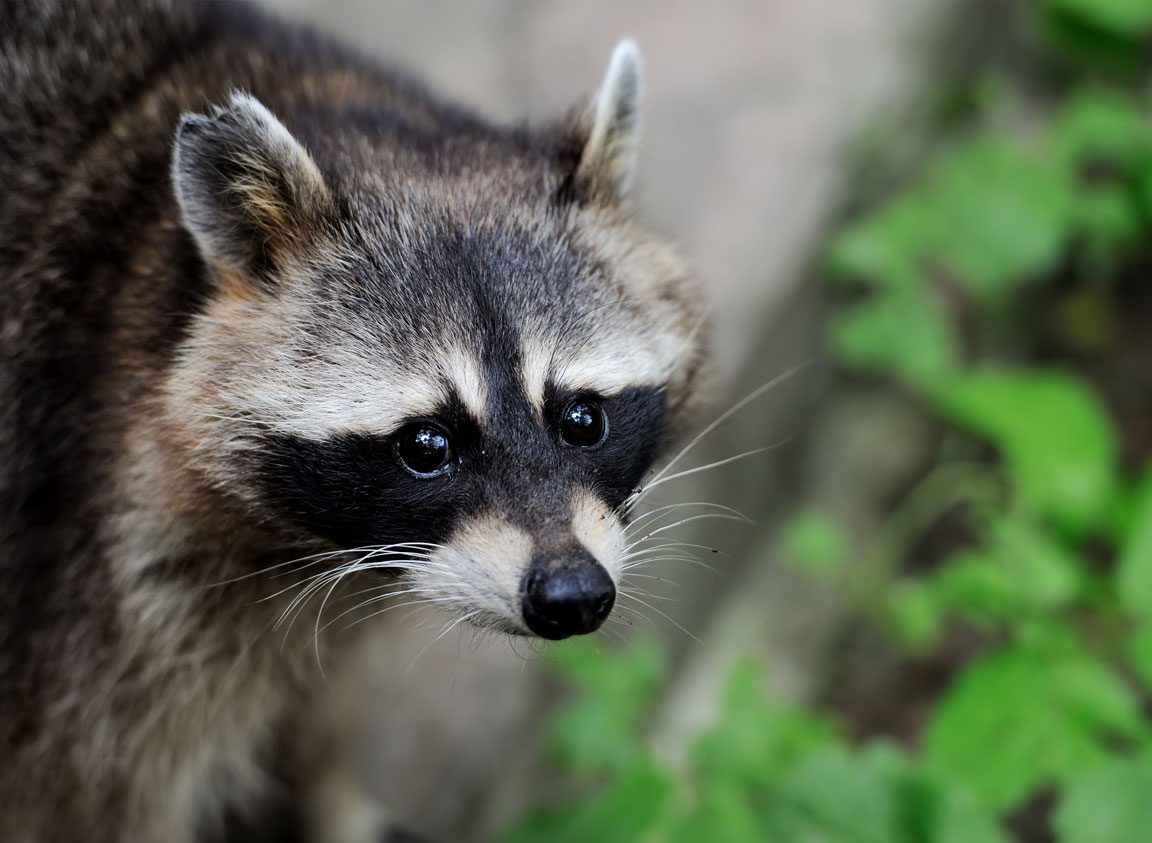Raccoons

Raccoons are extremely intelligent and resourceful creatures, possessing a seemingly boundless curiosity. They are able to adapt to a wide range of environmental situations, whether it is backwoods wilderness or urban cityscape. These traits have allowed raccoon to flourish under circumstances that might drive another species to the brink of extinction. There is much to be admired about these little “bandits.” Unfortunately, their ability to thrive in close proximity to humans also put them at risk. Raccoons are often vilified as pests who raid trash cans, potential vectors for rabies and destructive squatters in our homes. In reality, these critters are just trying to get by, just like us.
With this in mind, it is always preferable and certainly more humane to leave uninjured animals alone. Calling a nuisance wildlife removal service will most likely result in an inhumane death for the animals since it is illegal to relocate raccoons. Raccoons will sometimes have their young in places that are inconvenient for humans such as attics, chimneys, and backyard sheds. If this happens, be tolerant of them for 4 to 6 weeks.
If you do come across a sick or injured raccoon, many animal hospitals will humanly euthanize the animal. Follow the steps below or call us for advice.
Rescue Tips:
Injured/Sick Adults
Be careful! All wild animals can bite! If unconscious or badly injured, open a pet carrier in front of the animal. With a shovel or a broom, gently push the animal inside and close the door.
Trapping
It is illegal to trap and relocate raccoons. If a raccoon has taken up residence in an attic or shed, simply play a loud radio in the area starting at dusk and leave it on night and day. Also leave a light on in the area. If a raccoon has taken up residence in a chimney, do not start a fire! Simply play the radio in the fireplace and the animal should leave, taking any babies with her. If you spot a raccoon in a dumpster, simply tilt a sturdy branch or a board in the dumpster and the raccoon should leave after dark.
Babies
Raccoons are a Rabies Vector Species (RVS) in the state of New York. DO NOT handle them without gloves, even if they are very young. Do not attempt to handle or pick up juvenile or adult raccoons.
Don’t assume the mother is dead. Many babies are separated when their nest is disturbed. If there is a dead adult raccoon in the road, check to see if it’s lactating. Ask the following questions:
Are the babies cold? If the babies are small and very lethargic, feel the babies’ bodies. They should feel warmer than your hand.
Are the babies dehydrated? Wearing gloves, gently pinch the skin on their back. The skin should return to the normal position in 1-2 seconds.
If the answer to any of the above is yes, contact us for further instructions. If the answer is no, try to reunite the babies as follows:
Reunite
Place babies in box large enough that they can’t get out but small enough where mother can get in. Place them in soft cloths with a homemade hot water bottle (Place hot water in a 16 oz. soda or water bottle inside a sock). At dusk, leave the box near to the area where the babies were found. Check the next morning. Stay completely out of sight.
Remember, mother has alternate nests. She moves them around from nest to nest on a regular basis so these methods work even if nest was destroyed.
